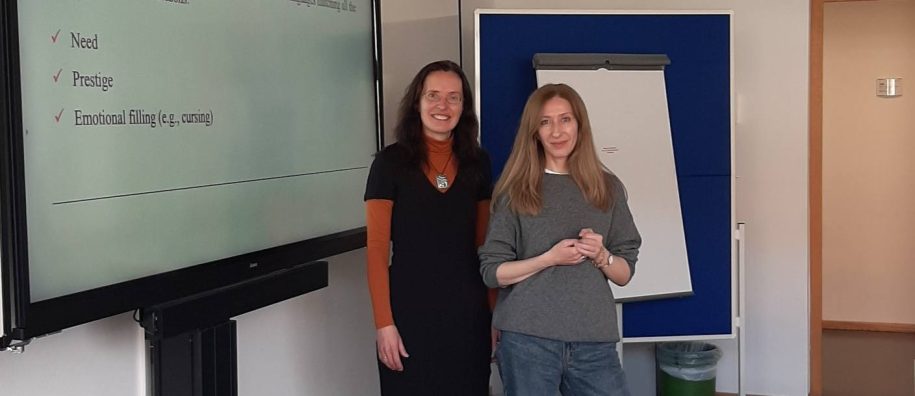
In early May, Prof. Dr. Sigita Rackevičienė and Dr. Eglė Selevičienė from the Faculty of Human and Social Studies at Mykolas Romeris University (MRU) visited the European University Viadrina in Frankfurt (Oder). The visit, carried out under the ERASMUS+ teaching programme, was part of the ongoing and steadily evolving collaboration between the two universities, both members of the European Reform University Alliance (ERUA).
This partnership extends far beyond mobility initiatives – it fosters a meaningful dialogue about the role of education in contemporary Europe, the cultivation of critical thinking, and the university as an open space for encounters between history, language, and culture.
The lectures delivered to students of the Faculty of Social and Cultural Studies offered insights into the historical and cultural ties between Lithuania and Germany. One of the sessions, held as part of the course “Trauma: Post-Fascist and Post-Colonial Memory Cultures,” explored key historical artefacts – from the Quedlinburg Annals and Gediminas' letters to the Act of Independence of Lithuania discovered in Germany by Liudas Mažylis. The session revealed not only historical facts, but also the emotional layers of memory, enriched by the lecturers’ personal family stories marked by totalitarian regimes.
The second lecture encouraged students to reflect on the evolution of language through cultural interaction. Participants discussed loanwords in their native languages, explored their etymologies, and considered the broader context of linguistic exchange. This approach aligns closely with ERUA’s philosophy – to foster deep, culturally sensitive academic collaboration.
During the visit, the lecturers also presented recent research conducted at MRU’s Institute of Humanities, including a study on students’ perspectives regarding the use of artificial intelligence in academic writing and a terminology project on cybersecurity. These topics reflect MRU’s clear direction toward integrating the humanities with technology – a cornerstone of modern university reform, and a goal actively supported within the ERUA framework.
The visit was warmly hosted by Viadrina faculty members Prof. Dr. Britta Schneider and PD Dr. Andrea Gremels. Both the academic content and the human connections established during this visit further strengthened the partnership between the two institutions – united not only by formal agreements, but by a shared vision of building Europe through scholarship, collaboration, and open thinking.